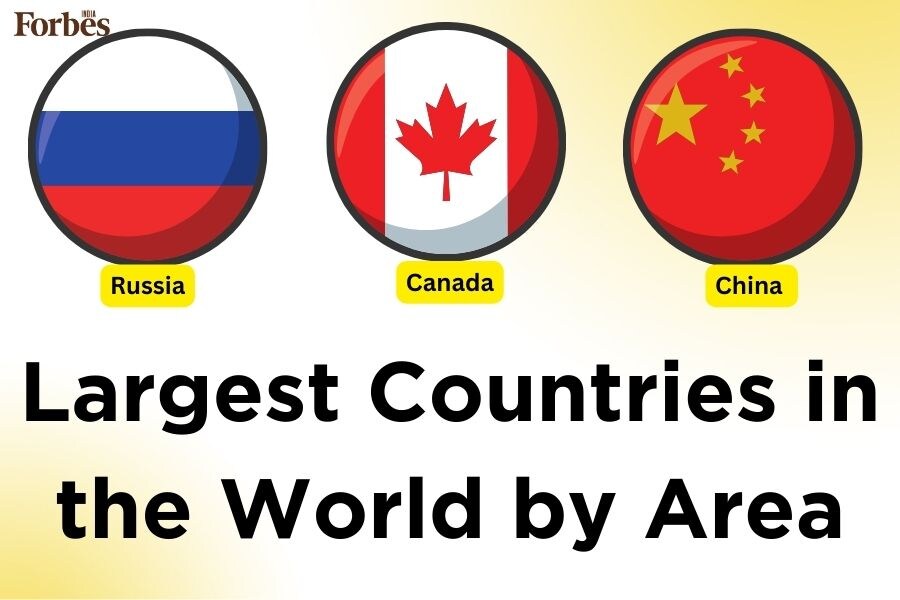
Top 10 largest countries in the world by area
Explore the largest countries in the world by area, from Russia to Canada, China, and the United States, and learn some fascinating facts about them all

Which are the largest countries in the world? What makes them integral to the shifting socioeconomic landscape of the world? In this post, let’s discover the top 10 largest countries in the world.
Top 10 largest countries in the world by Area
Let's look at the world's biggest countries, from Russia to Canada, China, and beyond.
| Name of country | Area in sq km | Region |
|---|---|---|
| Russia | 17,098,242 | Northern Asia and Eastern Europe |
| Canada | 9,984,670 | North America |
| China | 9,596,960 | Eastern Asia |
| United States | 9,525,067 | North America |
| Brazil | 8,510,346 | South America |
| Australia | 7,741,220 | Australia |
| India | 3,287,263 | South Central Asia |
| Argentina | 2,780,400 | South America |
| Kazakhstan | 2,724,910 | South Central Asia |
| Algeria | 2,381,741 | North Africa |
Now, we explore the world’s largest countries and discover what makes them stand out on the global stage.
Note: GDP 2022 data has been sourced for all countries from the World Bank.
Russia
- GDP: $2,240,422 million
- Population: 144,083,352
Russia is the largest country in the world by land area, spanning across two continents, Europe and Asia. Its expansive territory encompasses diverse landscapes, from Siberia's tundra to the taiga's vast forests and the majestic peaks of the Caucasus Mountains. With a rich history and cultural heritage, Russia is home to iconic landmarks like the Kremlin in Moscow and the Hermitage Museum in St. Petersburg. Its sheer size and geopolitical influence make it a significant player on the global stage.

![Top 10 poorest countries in the world by GDP per capita [2024] Top 10 poorest countries in the world by GDP per capita [2024]](https://stgimages.forbesindia.com/media/images/2023/Aug/img_215935_poorestcountriesintheworldbygdppercapita.jpg?impolicy=website&width=122&height=70)





